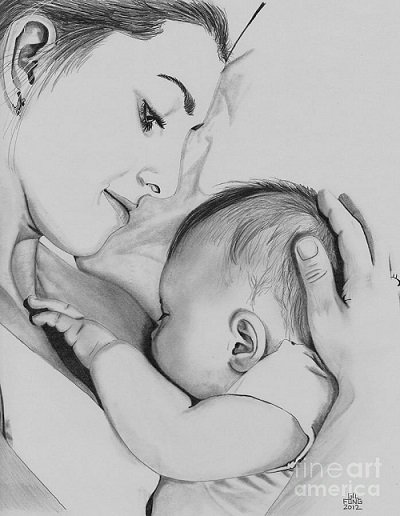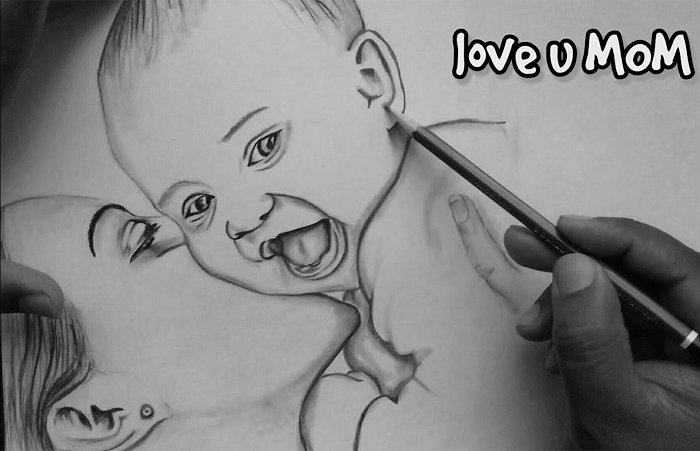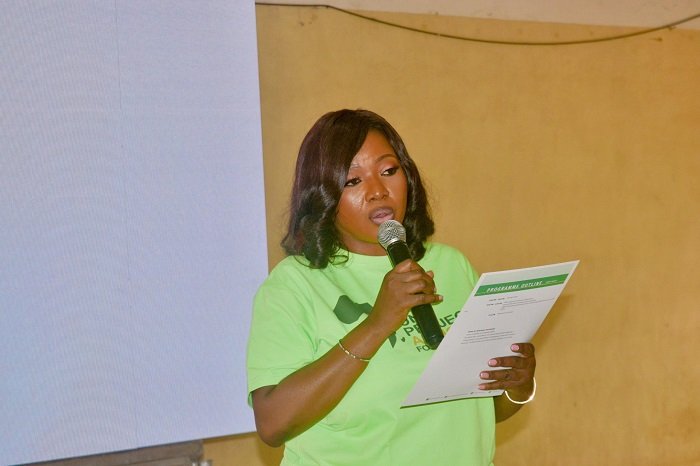News
Thank you mothers; Bless your hearts

Much of the world’s most important work is done by people who don’t get much recognition. Teachers, farmers, labourers, military personnel, emergency responders, and so many others who all play such vital roles in our society, yet they often do it quietly, without the appreciation they deserve. And for no one is that more true than for mothers.
Pausing once a year to give mothers much-deserved thanks is completely appropriate. And maybe instead of being our annual day to honour mothers with flowers and cards, Mother’s Day should be our annual reminder to honour them every day; in whatever way will help them feel loved. When children (young and old) spend time with their mothers, to listen and learn from them, to remember something their mothers taught them, and to wrap their arms around their moms and express love these are the love notes that mean the most to mothers.

Every day of the year, mothers worry about whether they are good enough, loving enough, firm enough, involved enough, or involved too much. We can help them see that they are just right. Every mother knows she cannot solve all the problems her children face. But that will never stop her from trying to help, even when her efforts seem to be neither noticed nor appreciated. But along the way, she learns how to listen more than speak. She learns to understand more than correct. She learns to see possibility when others lose hope. In short, she learns how to love.
In the end, when a mother stops to evaluate her life’s work, her satisfaction comes less from flowers and cards, as nice as such things are, and more from the love that has flowered in her soul: the love she feels for her family and the love they return to her. A mother is a living example of the kind of love that the Apostle Paul called charity: She suffers long. She is kind, humble, and unselfish. She rejoices in truth, bears all things, believes all things, and endures all things (see 1 Corinthians 13:4–8). And she didn’t get that way by being a mother one day a year. Every day, she can receive and give charity, the greatest reward of motherhood.
Mothers, by their very nature, are always thinking of others. Years of sacrificing and serving, of loving and giving, have taught them that their joy is increased as they bring joy to others. One man learned this lesson from his mother in an interesting way, long after he was grown, married, and had children of his own. By this time his mother was elderly and residing in an assisted-living centre. The son had brought his family to see her on Mother’s Day, which wasn’t unusual; they came to visit her often.
But this time, soon after welcoming them with open arms, the frail woman picked up the phone and began calling a neighbour. When her son asked what she was doing, she just smiled. No one answered the phone, but every few minutes, even though dialling was difficult for her, she called again and again and again. At last, her friend answered the phone. “Please come and join us,” the mother said. “My son and his wife and family are here. Come over!” And then the son knew why his mother had been so persistent in calling. She knew that her friend might not get any visitors, and she did not want her to be alone on this special day. She could have just enjoyed her family’s company; no one would have blamed her for wanting them all to herself. After all, it was Mother’s Day, and they had come to see her. Instead, she reached out to someone whose needs were perhaps greater than her own. The friend came over, and together the family and the two mothers talked and visited, laughed and reminisced, enjoying a beautiful afternoon together. There was more than enough love and joy to share on this never-to-be-forgotten Mother’s Day. This captures so well what it means to be a mother—and a grandmother. They think of others. They love and give and spend time caring for others. As a result, their circle of goodness ever expands to include those who might otherwise be left out. That’s why their hearts are so big, because they are so often reaching out instead of focusing on themselves. A mother’s heart enlarges the world with love and joy.

No matter the language, culture or continent, what a difference a mother makes. She is the purveyor of love and tenderness, which prompts nation after nation from Ghana to Guyana from America to Angola, Thailand to the pacific island of Tahiti to honour mothers with a day of tribute once a year.
The Twi word for mother or mum is Obatan. Think about it; she is the one person who loves us unconditionally, who cares for us without limits, who never tires of us and makes us smile time and time again.
Each one of us holds in our hearts special memories of our mothers and of those who have also stood at our sides; grandmothers, aunts, sisters, neighbours, even teachers. These women have held us accountable, taught us the basic strengths of society like truth, honour, mercy, goodness and loyalty. I think of my own grandmother, mum and aunties attending to my basic needs since I was brought to this beautiful earth. They have been cheering me on ever since.
So to all mothers everywhere; Dear mothers, please kindly close your eyes to the many noises and disorder around, forget for a moment the things you haven’t been able to do, and know that you are loved, that your sacrifice is of great worth, and that you are more than good enough. God bless mothers everywhere.
By Samuel Enos Eghan
News
Penile implant a cure for Erectile Dysfunction
Men in Ghana, including those as old as 80 are suffering from conditions like hypertension and diabetes, now have a reliable treatment option for Erectile Dysfunction (ED), which is penile implant surgery.
In an interview, a Consultant Urologist and Sexologist, Dr Samuel Amanamah, shared that 52 per cent of men aged 40–70 were affected by ED in varying degrees.
He described ED, referred to as impotence, as the persistent inability to achieve or maintain an erection sufficient for sexual intercourse.
The condition, he stressed, has contributed to marital breakdowns, low self-esteem, and even infertility.
“Men in this situation can now breathe a sigh of relief,” Dr Amanamah said, adding that, “Age or chronic conditions like diabetes are no longer barriers to treatment. Even 80-year-olds have successfully undergone the procedure.”
The penile implant was considered the final treatment option for men when all other interventions, including oral medications, injectables, and medical devices fail.
The procedure involved inserting a silicon rod into the erectile tissues of the penis, providing an immediate and controllable erection, stating that there were two types of implants: malleable, which is always firm, and inflatable, which allows the user to regulate erections.
Dr Amanamah mentioned that the surgery required only a small 4cm incision beneath the penis.
“The incision site is barely visible after healing,” he said, adding that the minimally invasive procedure usually lasts an hour. Patients are typically discharged within one or two days.
Aesthetically, the penis remains unchanged after the procedure, and it is almost impossible to distinguish between one with an implant and one without, he noted.
“Functionally, the implant is even superior to natural erections,” he underlined. “It can last over 20 years and allows for intercourse as often as the patient desires.”
He added that patients can still father children after the procedure, provided they do not have underlying fertility issues.
“Some patients who suffered from 10 years of infertility have gone on to have twins after the surgery,” he noted, adding that others have reconciled with spouses after being previously divorced due to ED.
Although complications were possible, the success rate of penile implants was as high as 93 per cent, Dr Amanamah emphasised, stating that occasional erectile failure does not qualify as ED.
He also outline that the dysfunction must be persistent. “Some men start with a good erection but lose it during intercourse. That still counts as ED.”
Furthermore, he explained that ED can stem from various causes, including cardiovascular issues, neurological disorders, hormonal imbalances, and chronic conditions like hypertension and diabetes.
Psychological factors such as unresolved marital problems also play a role. Conditions like priapism, that is, prolonged erection often linked to sickle cell disease or abuse of sex-enhancement drugs could also result in ED if not promptly treated.
Moreover, Dr Amanamah underscored the importance of treating the root cause noting that “simply giving medication without addressing underlying issues only delays the problem,” and added that “effective treatment must be holistic.”
“When oral or injectable medications and medical devices fail, the penile implant remains a safe and long-term solution for restoring sexual function and quality of life,” he noted.
From Ama Tekyiwaa Ampadu Agyeman, Koforidua
News
Psychological distress rises among teenage girls

The Mental Health Authority of Ghana has recorded rising psychological distress cases among teenage girls in the country.
The rise, according to the authority, is linked to academic pressure, family issues, gender-based violence, and isolation.
This was disclosed by Victoria Naema Abdulai, the founder of the One Project Africa Foundation (OPAF), a non-profit organisation focused on empowering women and girls.
Ms Abdulai said this at a mental health awareness session organised by the foundation for students of the Accra Girls Senior High School in Accra.
It was held under the theme “Empowering Her Mind, Voice and Power: Fostering a Resilient Tomorrow for the Girl Child through Mental Wellness,” which was aimed at building self-awareness, promote emotional healing, and encourage resilience among young girls.
She stated that mental health was not a luxury but the foundation on which every girl’s future should be built
Ms Abdulai said despite the rising need, mental health remains one of the most misunderstood and neglected issues in our society.
She said without mental wellness, young girls will continue to struggle silently with learning, dreaming, and relating to others, warning that the lack of attention to girls’ mental health is costing society their potential.
She urged students to embrace their emotions and seek help when struggling. “You are not weak for having emotions. You are human. Seeking help does not make you a failure, it makes you courageous.”
Touching on what the foundation does, Ms Abdulai said the foundation teaches girls how to pass exams but not how to process pain, obey instructions but not how to handle rejection. We are obsessed with excellence but ignore the exhaustion.”
A Mental health practitioner and addiction specialist, Esther Kyewaah Opoku, on her part stated that mental health was not separate from general well-being but central to it. “Without your mental health, you are not healthy,” she said.
She mentioned that adolescence is a fragile period, with the brain still developing until age 25.
She disclosed that one in seven adolescent girls in Ghana has a mental disorder, with 26 per cent experiencing depression, 29.8 per cent emotional distress, and 14.8 per cent suffer trauma or behavioural issues.
She also blamed these conditions on peer pressure, bullying, sexual abuse, and toxic comparisons driven by social media. “We are sitting on a time bomb,” she said, urging early intervention and compassion.
According to her, adolescence is a critical stage of mental and emotional development, during which the executive brain, or forebrain, continues to form until age 25.
“This period is filled with vulnerabilities that, if unmanaged, can lead to lifelong challenges,” she said.
Ms Opoku therefore called for compassion, peer support, and continuous education on mental health to break the cycle of silence and stigma, particularly among young girls, saying “nobody should feel alone or hopeless.”
By Stephanie Birikorang






